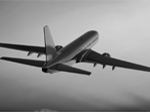CARE, Ground Handlers, Safety
Mandatory Reporting Requirements for Ground Handlers
Those of you reading our website in the past few weeks should have noticed on the front page a headline article under the heading “Guide to Ground Safety Reporting”.
In view of the significance of this document it deserves the wider coverage afforded by our newsletter.
Why does ULD CARE believe this document to be of such importance? This is because for the first time to our knowledge a National Civil Aviation Authority (the UK CAA) has clearly required ground handling organizations to report on safety critical incidents they observe in their daily operations. Given that so much of ground handling (including ULD operations) is outsourced to service providers, some small and local, some large and global, this is quite a radical development that should not be ignored by anyone coming into contact with ULD’s.
This document, downloadable at http://www.caa.co.uk/application.aspx?catid=33&pagetype=65&appid=11&mode=detail&id=5806 was published in September 2013 and provides an easy to understand guide to the requirements of the UK CAA’s CAP 382 “The Mandatory Occurrence Reporting System” which has been in force since March 2011 in its current format.
In case you are wondering why this matters to you, we provide some guidance here, and, at the same time, we recommend that you take steps to familiarize yourselves and your colleagues with the implications of these documents.
The basis for the guide is that it lays out very clearly the responsibilities of all staff involved in the aircraft turnaround process to report all events that affect the safety of the aircraft through an established process, within a defined time frame, through their employer’s safety reporting system to the relevant section of the UK CAA. Under the list of examples shown in the publication the wording “ Defective restraint equipment should also be reported such as nets, straps, locks and ULD’s which are used to carry traffic loads” ( see page 08) and also under “ Did you Know? on page 5 is given the example “ Sometimes it can be easy to overlook an error. For example, if you were to discover unrestrained load during the offload of an inbound flight, ensure you report it”.
Furthermore, on page 4 it is spelt out that “ A ground handling safety event in the UK should be reported to the CAA ( MOR Scheme) regardless of whether the aircraft involved is UK or foreign.
How does this impact ULD owners and operators?
Well, any airline considering using ULD on flights in or out of the UK that are not serviceable within the defined damage limits for that ULD should think twice, as it is now a requirement on the ground handler who will unload or load that aircraft to report such defects. Airlines will be well advised to ensure that their ground handlers are fully informed about the acceptable damage limits for their ULD’s, preferably through the use of IATA Operational Damage Limit Stickers ( ODLN) on each unit or, as a backup, through providing clear guidance to their ground handlers. The widespread knowledge and understanding of the importance of the ODLN and the necessity to inspect all ULD’s before use by all ground handling staff is essential if only serviceable ULD’s are to be used.
This requirement applies to all aircraft on UK soil, not just those belonging to UK airlines, and as a very large percentage of the world’s airlines fly to the UK, this can be said to impact many airlines.
ULD and ULD accessories, as well as restraint , are very specifically mentioned in this document, leaving no doubt as to whether a ground handler is responsible for reporting the presence of unsafe (read damaged) ULD’s on all flights they handle, either inbound or outbound.
ULD CARE believes that this is a development that is of importance to both airlines and their ground handlers. While we cannot see into the future, it would not surprise us to see this sort of approach being applied on a much wider scale by other authorities, making it all the more essential that ULD’s are only ever operated when in fully airworthy condition.



Comments are closed.